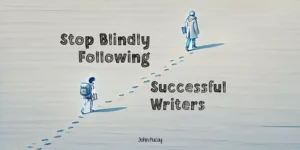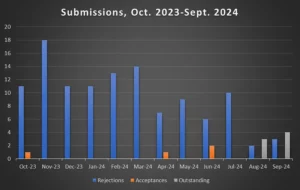“Unlock the Secrets: 30 Surprising Insights That Every Aspiring Screenwriter Must Know!”
Are you looking to sharpen your screenwriting skills but don’t know where to start? Well, you’re in luck! There’s a straightforward blueprint that can skyrocket your understanding of screenwriting: Read Scripts. Watch Movies. Write Pages. It’s almost like a magic formula—because who doesn’t want to conjure up compelling stories? It boils down to four key numbers: 1, 2, 7, and 14! Intrigued? These numbers represent the weekly activities aimed at nurturing your craft. So, grab your favorite snack, settle into your comfy chair, and let’s dive into how you can transform your screenwriting game with just a little focus and creativity! Curious minds, let’s explore the steps you need to take to become a more proficient storyteller! LEARN MORE.

Here is a simple formula about three things — Read Scripts. Watch Movies. Write Pages. — you need to do to expand and deepen your understanding of the screenwriting craft.
4 numbers for you to remember:
1, 2, 7, 14.
1: Read 1 screenplay per week.
Pick out your favorite movies. Or do a genre study of several scripts in a row in one genre. Try scripts in genres you don’t particularly like to experience different tone and atmosphere. But every week, read at least 1 full-length movie screenplay.
2: Watch 2 movies per week.
Go to a theater and watch 1 movie for sheer entertainment value. Rub shoulders with a real crowd to remind you of your target audience. Then cue up Netflix or pop in a DVD, and watch 1 movie to study it. Note its major plot points. Better yet, do a scene-by-scene breakdown. Maybe 1 new movie, 1 classic movie. But every week, watch at least 2 feature-length movies.
7: Write 7 pages per week.
That’s one page per day. It may take you ten minutes, it may take you an hour, but however long it takes, you knock out a page per day so that every week, you produce 7 script pages.
14: Work 14 hours per week prepping a story.
This is how you will learn the fine art of stacking projects. While you are writing one story, you are prepping another. Research. Brainstorming. Character development. Plotting. Wake…














Post Comment